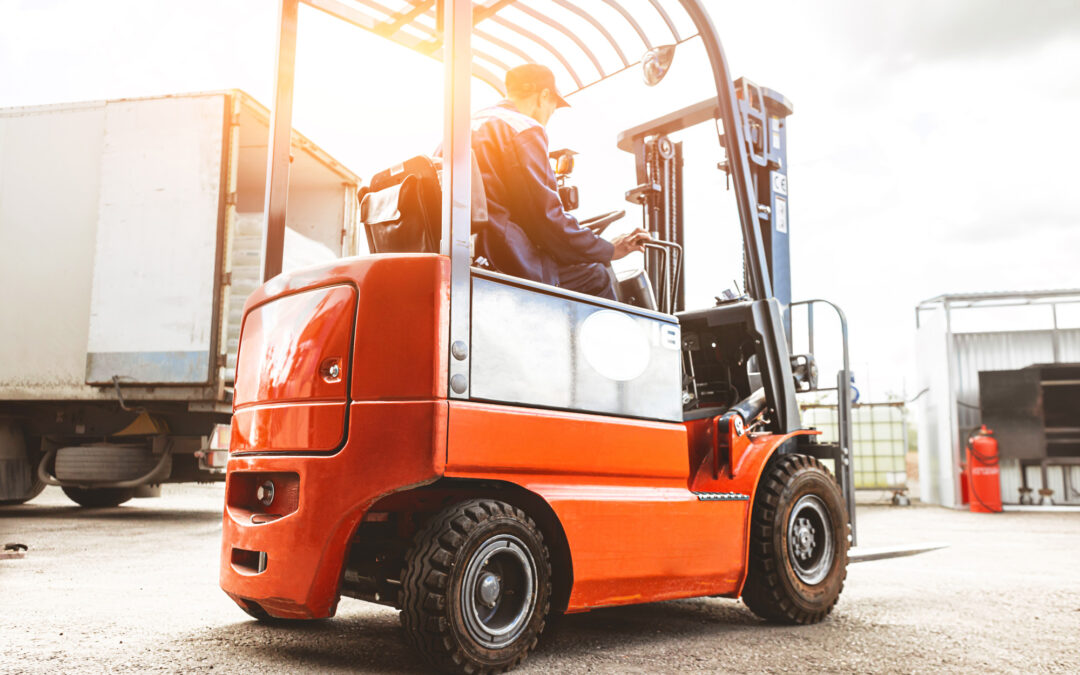When it comes to efficient material handling, forklift leasing is a game-changer. By understanding the fundamentals of forklift leasing and exploring its various benefits, you can optimize operations and reduce material handling time without committing to a significant investment.
In this article, we will delve into forklift leasing and its advantages, as well as discuss necessary considerations when leasing a forklift.
Understanding the Fundamentals of Forklift Leasing
What Is Forklift Leasing?
Forklift leasing is when you enter into a lease agreement with a leasing company to get machinery like electric forklifts, reach trucks, and automated guided vehicles for a certain period. The leasing period depends on the terms of the lease. At the end of the lease, you have several options to choose from—renew the lease, purchase the equipment at a predetermined selling price, or return the equipment.Types of Forklifts Available for Lease
Forklift leasing includes traditional fuel-powered and electric forklifts as well as various models of internal combustion forklifts, narrow-aisle forklifts, lift trucks, automated guided vehicles, forklift attachment options, and more. You can also lease newer models, gaining access to the latest technologies and functionalities. Available forklift brands vary depending on the rental service, but popular choices include Hyundai, Taylor-Dunn, and Cascade, among many others.The Role of Leasing Companies
Leasing companies play a crucial role in providing fleet solutions. They offer various machinery options and services, including maintenance and repairs. They also handle the complex paperwork related to the lease agreement. Furthermore, a reputable leasing company provides all the necessary details, including the model and serial numbers, showcased on the data plate of the vehicle.How Forklifts Improve Material Handling
Using a forklift for material handling offers numerous advantages, making it essential if you’re looking to optimize their logistics and warehouse operations.- Efficiency: Forklifts are designed to efficiently move heavy loads over short distances, reducing the time and effort required for manual handling.
- Time Savings: Forklifts can significantly speed up material handling tasks, resulting in faster loading, unloading, and transportation of goods within a facility.
- Heavy Load Handling: Forklifts can lift and move heavy loads that would be impractical or impossible for manual laborers to handle, increasing overall productivity.
- Reduced Labor Costs: Using forklifts minimizes the need for as much manual labor, leading to a decreased risk of worker fatigue or injury and potential cost savings in wages.
- Versatility: Forklifts come in various types and sizes, making them versatile for handling different kinds of materials in diverse environments, from warehouses to construction sites.
- Safety: Properly operated forklifts contribute to safer material handling by minimizing the risk of strains, sprains, and other injuries associated with manual lifting.
- Precision: Forklifts offer better control and precision when placing heavy items onto shelves or loading and unloading vehicles, reducing the risk of damage to goods.
- Height Access: Many forklifts can lift materials to significant heights, enabling efficient stacking of goods in warehouses and storage facilities.
- Space Utilization: Forklifts allow for better vertical space usage by enabling the stacking of items and optimizing storage capacity in warehouses.
- Weather Independence: Forklifts allow material handling tasks to continue even in adverse weather conditions, unlike manual handling, which can be impeded by rain, snow, or extreme temperatures.
- Environmental Impact: Electric forklifts produce zero emissions, making them an environmentally friendly option compared to internal combustion engine forklifts.
Exploring the Various Benefits of Forklift Leasing
If you need a material handling job done quickly but don’t want to spend a massive amount of money on equipment, forklift leasing and renting are ideal options. Here are some of the greatest benefits of leasing or renting a forklift.Saves Money
Forklifts can be extremely expensive, and investing in a new piece of machinery isn’t optimal if you don’t need heavy equipment for an extended period. Forklift rental costs are much more reasonable and are typically conducted in monthly payments, allowing you to continue using equipment for as long as you’d like. The cost to rent varies depending on the lease term, the type of forklift, its condition, and more. Additionally, lease agreements often come with fixed monthly payments, making it easier to budget and plan for equipment expenses over time. Lease payments may also be considered operational expenses, potentially offering tax advantages compared to the depreciation of owning a forklift. All of these factors help businesses save money with forklift rentals.Forklift rental prices can make or break your desire to lease material handling equipment. Brennan’s forklift rental costs are affordable, giving you access to high-end machinery without breaking the bank.

